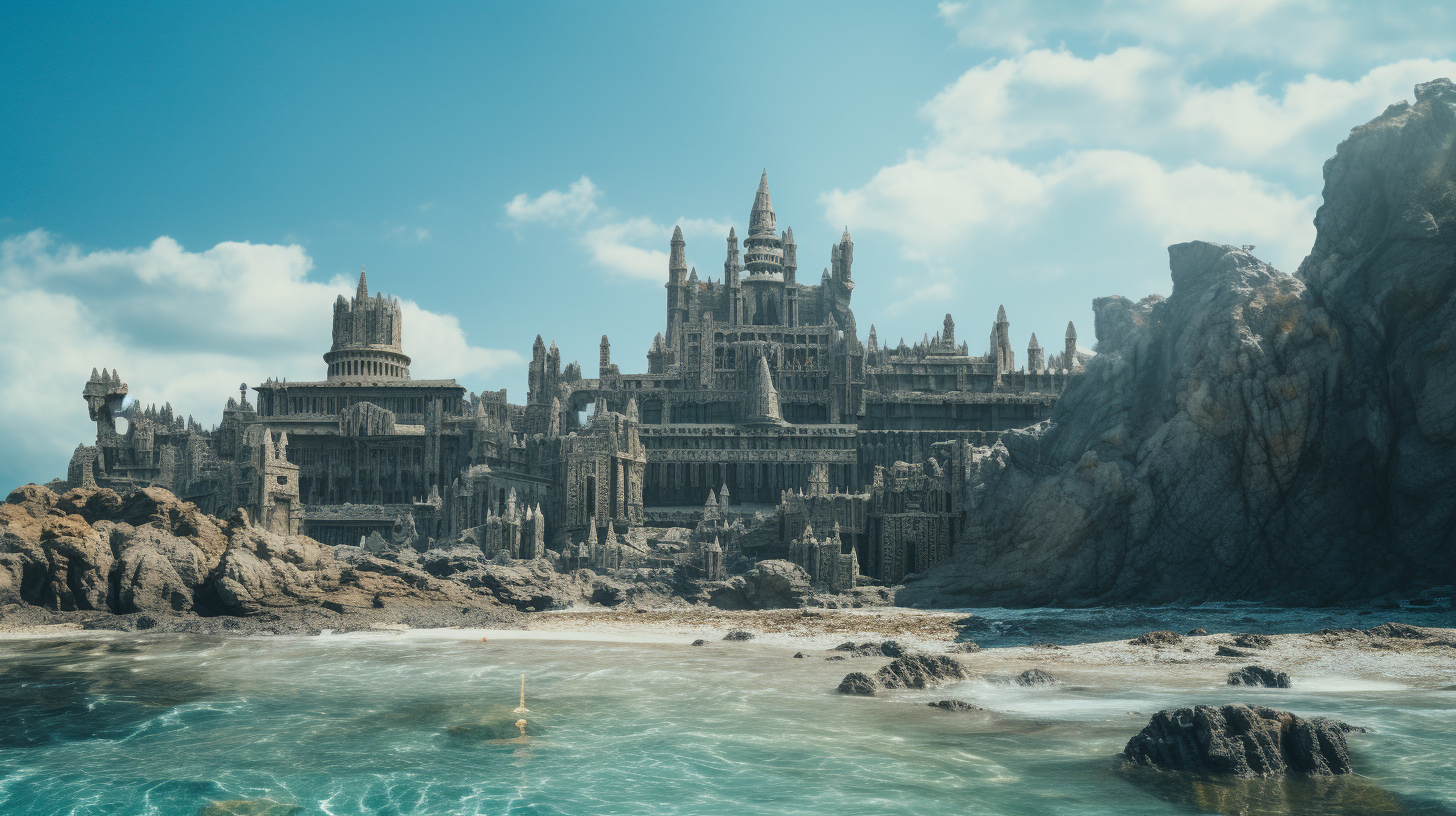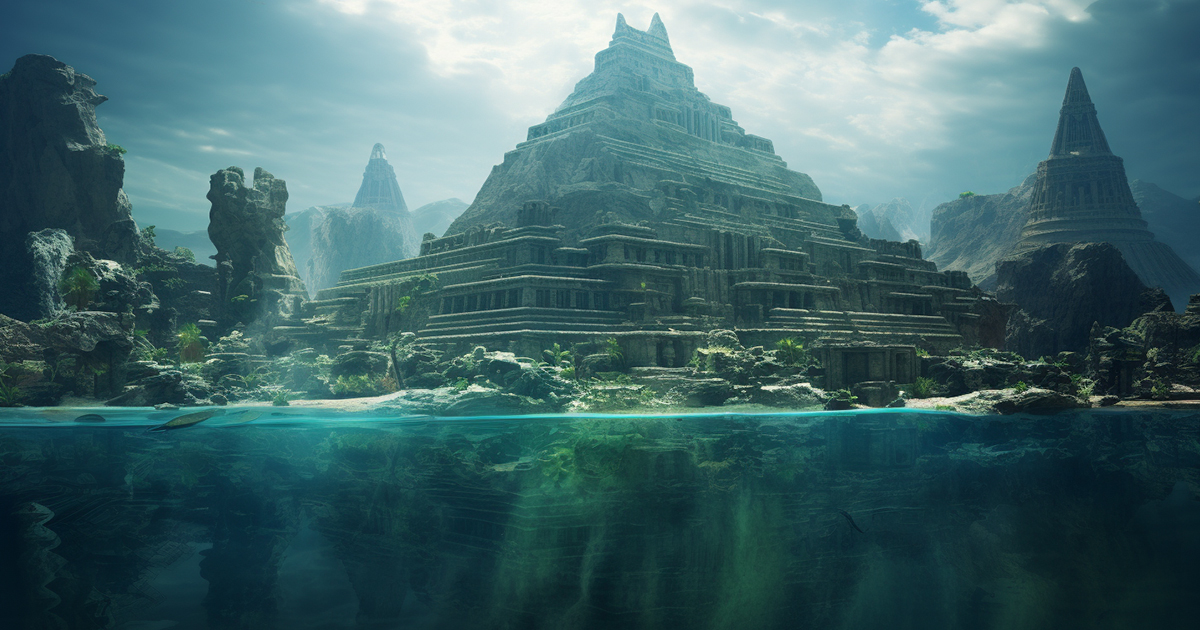Embedded within the rich tapestry of history are numerous mysteries and alluring conundrums, but few narratives captivate the mind like that of Atlantis. Dating back over two thousand years, the philosopher Plato was the first to introduce the story of this legendary island civilization in his dialogues, Timaeus and Critias. According to Plato’s accounts, Atlantis thrived as a society governed by laws inscribed on a mystical pillar discovered within the Temple of Poseidon at the core of the island.
The mystical pillar, crafted from a mysterious substance known as orichalcum, bears a name that intriguingly translates to “origin unknown.” The mere mention of orichalcum has ignited centuries of speculation and exploration. While popular TV shows may often delve into the realm of fantasy, there is a kernel of truth underlying this narrative that demands our scrutiny.
Unveiling the Radiant Metal of Atlantis
Plato’s narratives describe how the Temple of Poseidon emanated a dazzling red glow attributed to the presence of orichalcum. This enigmatic metal, with its coppery sheen, has captivated historians, archaeologists, and adventurers for generations. The captivating copper tint of orichalcum beckoned explorers to Atlantis in pursuit of its secrets.

However, the allure of orichalcum transcends its physical attributes; it carries spiritual significance. Some posit that there was a divine essence imbued within this metal, establishing a connection that resonated with the deities. This mystical affiliation adds complexity to the narrative, prompting us to delve into the spiritual dimensions of ancient societies.
Contemporary Revelations Beneath the Waves
Fast forward to 2015, off the shores of Sicily, where marine archaeologists unearthed a discovery that reignited discussions surrounding orichalcum. A sunken vessel revealed a cache of 39 metal ingots confidently identified as orichalcum by experts. This revelation naturally sparked the question: Could Plato’s depiction of Atlantis harbor more truth than fiction? Could this finding be evidence of a forgotten ancient civilization?
What renders the revelation of orichalcum particularly fascinating is its composition. Comprised of 80% copper and 20% zinc, scholars are puzzled by the fact that zinc does not occur naturally but exists in the form of sphalerite, a zinc-sulfur compound in nature. Extracting zinc requires processing it from this sulfide, a technological feat not traditionally associated with ancient eras.
Plato’s writings offer no insights into the origin or production of orichalcum, preserving its enigma. Nonetheless, with its link to Poseidon and the divine, entertaining the notion that the gods themselves might have imparted this knowledge to the Atlanteans is not far-fetched.
Ancient Extraterrestrial Entities and Their Impact
Here we delve into the realm of ancient astronaut theory, suggesting that our progenitors received wisdom from beings beyond our planet. Proposing that these celestial visitors schooled early humans in diverse disciplines, including metallurgy.
The concept is riveting: What if the Atlanteans were truly mentored by entities from outside our world, instructing them in the art of manipulating metals? This theory posits that these extraterrestrial mentors catalyzed our evolution into the sophisticated civilization we are today.
In the absence of concrete historical records, we are left to contemplate the tantalizing possibilities. Could the discovery of orichalcum be the absent piece in the puzzle of Atlantis? Did ancient aliens influence the advancement of our species, leaving traces of their intervention in the allure of this mesmerizing metal?
Video:
Whilst television series weave intricate webs of intrigue and conspiracy, the story of orichalcum and its association with Atlantis presents a compelling tale on its own. It acts as a reminder that amidst our era of scientific progress, ancient enigmas await resolution, one revelation at a time.
